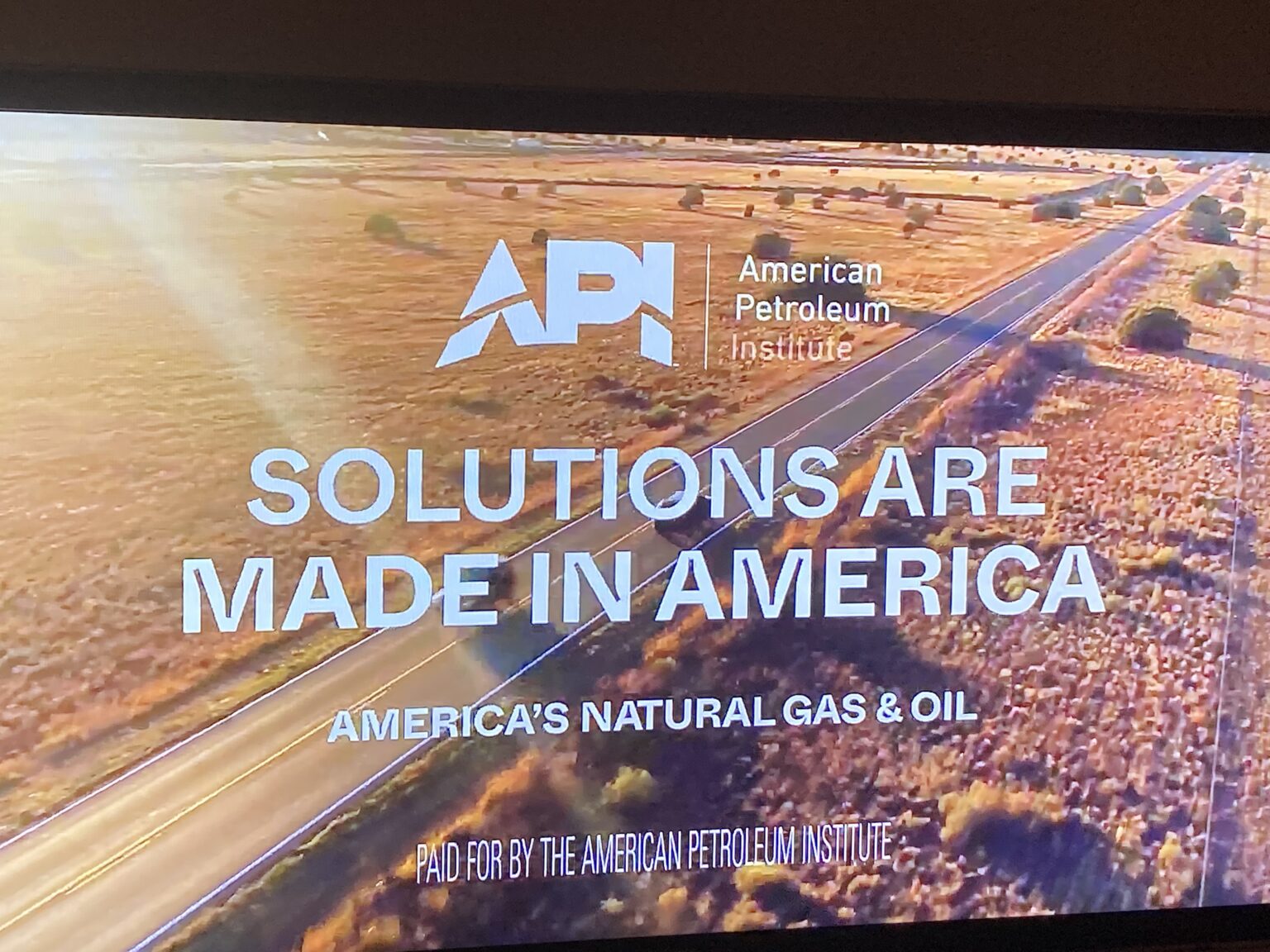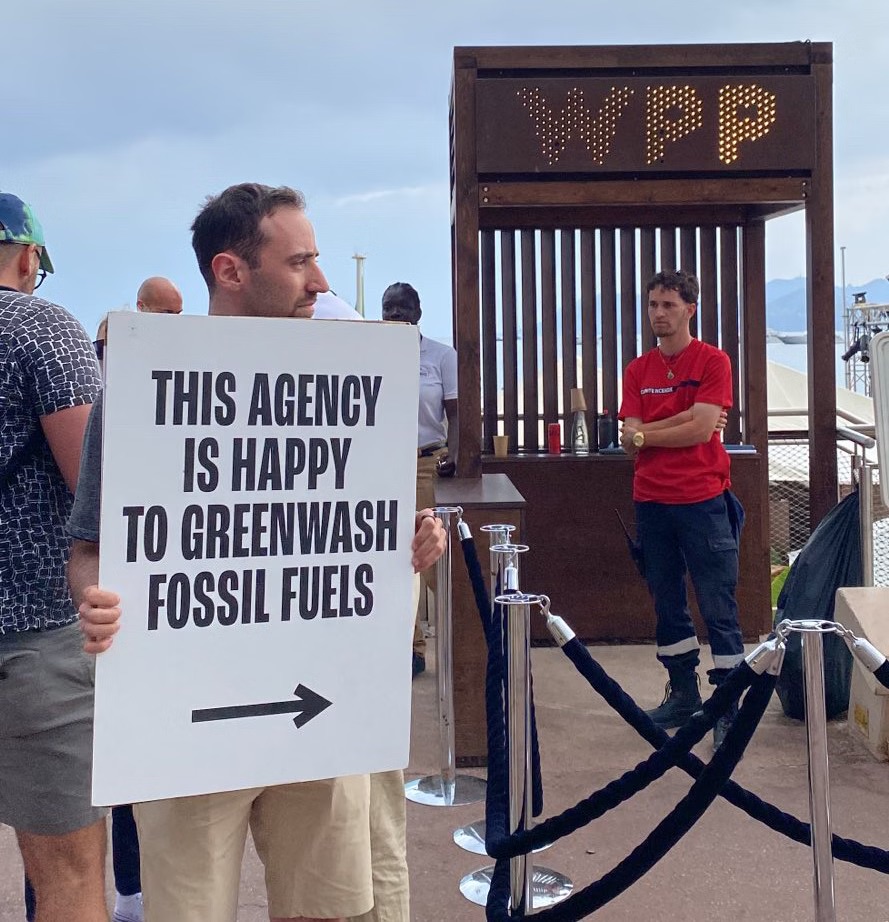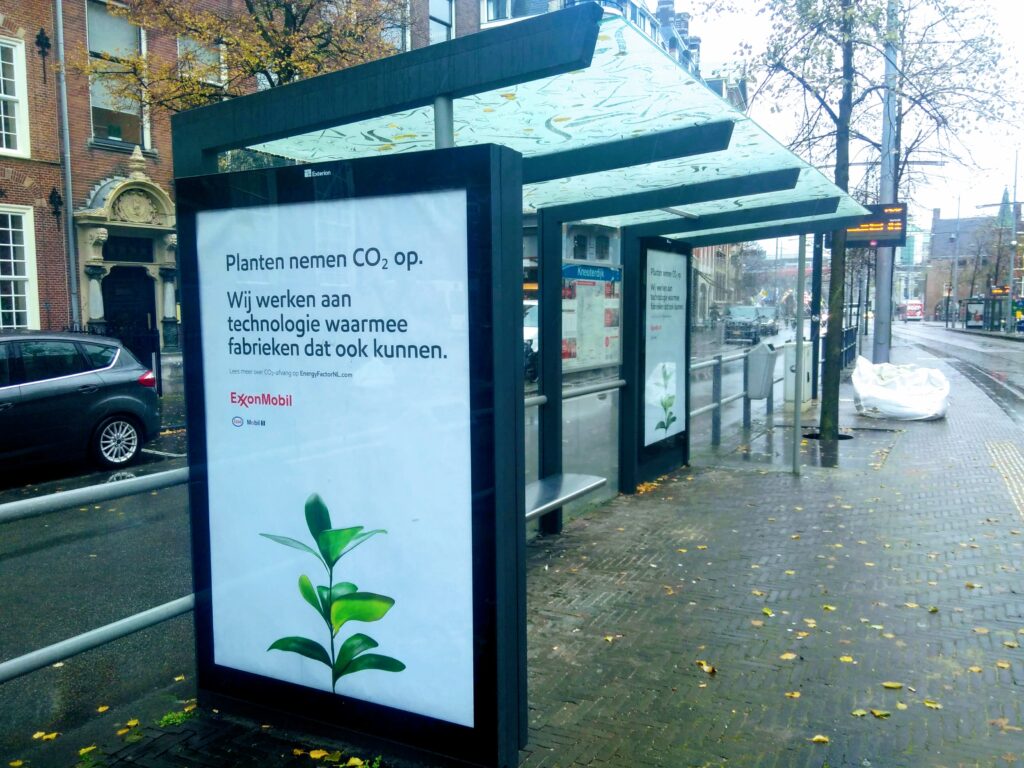Companies are increasingly facing legal action over their false or misleading climate communications, according to a new report examining trends in global climate litigation. That report, released late last week, highlighted a surge in litigation around climate-related greenwashing — what researchers have termed “climate-washing” — over the past few years.
Out of 81 climate-washing cases filed against companies since 2015, nearly two-thirds were brought in 2021 and 2022. By contrast, fewer than 10 such cases were filed both in 2020 and 2019.
Climate-washing litigation confronts various types of deceptive or misleading claims, typically put forth by carbon-intensive corporations, that try to portray their plans, products, or operations as more climate-friendly than they actually are. By engaging in climate-washing, corporations are trying “to shift public perception regarding their business activities to be viewed as part of the solution to, rather than the primary cause of, climate change,” explains a January 2022 policy briefing examining this type of litigation. According to that briefing, legal actions around climate-washing “are likely to increase.”
The new report from the London-based Grantham Research Institute on Climate Change and the Environment, titled “Global trends in climate change litigation: 2023 snapshot,” confirms that this is already happening.
“Cases concerned with mis- and disinformation on climate change are far from new, but the last few years have seen an explosion of ‘climate-washing’ cases filed before both courts and administrative bodies such as consumer protection agencies,” report authors Joana Setzer and Catherine Higham said. While climate-washing might incorporate disinformation or misinformation as part of its tactics, it is “a broader term that encompasses the deceptive practices employed specifically to create a positive image on climate-related issues,” Setzer explained.
She said several factors could explain the recent rise in climate-washing litigation. These include growing climate awareness leading to greater public scrutiny of claims and actions related to climate change, increasing calls for corporate accountability, more attention from regulators to misleading climate-related claims, and the relative ease of bringing these types of cases compared to other climate lawsuits.
“Climate-washing cases are generally easier and cheaper to bring and win, as most countries will have an established legal basis to protect consumers from false advertising and deceptive practices,” Setzer told DeSmog.
Growth in ‘climate-washing’ cases challenging the accuracy of green claims and commitments is shown in our #LSEClimateLitigation report out todayhttps://t.co/BxLKupKBxX pic.twitter.com/k2WNJQdb0P
— Grantham LSE (@GRI_LSE) June 29, 2023
One type of climate-washing concerns overstated investments in or support for climate action, such as statements or advertising suggesting a company is spending more on renewable energy than it actually is. Recent years have seen a number of complaints filed with oversight bodies targeting this corporate strategy.
In December 2019, ClientEarth filed a complaint with the UK authority under the Organisation for Economic Co-operation and Development (OECD) challenging BP’s “Keep Advancing” and “Possibilities Everywhere” ad campaigns that overemphasized the oil major’s low-carbon activities. BP withdrew the ads shortly thereafter.
More recently, the campaign group AdFree Cities filed a complaint against Shell with the UK’s Advertising Standards Authority, arguing the oil major’s ad campaign promoting its renewable energy and EV charging initiatives were misleading. The advertising authority issued a ruling several weeks ago banning the ads, finding they did, in fact, misrepresent Shell’s renewable energy initiatives relative to its traditional oil and gas business. In the United States, Shell is also facing charges that it is misleading investors with its stated spending on “renewables and energy solutions.” In a complaint filed with the U.S. Securities and Exchange Commission in February, Global Witness points out that this business category includes fossil gas and gas-related activities, like hydrogen, and therefore overstates what Shell actually invests in carbon-free renewables, like wind and solar.
Furthermore, from France to Italy to the United States, climate campaigners and local and state governments are taking oil and gas majors to court for their deceptive climate claims and communications. Many of the U.S. climate lawsuits brought against Big Oil include consumer fraud claims, alleging companies like ExxonMobil, Chevron, and Shell deliberately misled the public about the climate risks of their products and their business, arguing the deception continues to this day. Multnomah County, Oregon, just lodged the latest of these cases and notably named a new defendant — consulting goliath McKinsey & Company, which has worked for at least 43 of the top corporate carbon polluters.
PR and Ad Agencies Face “Real Risks”
Other firms that service and enable fossil fuel clients could soon find themselves roped into these lawsuits, climate campaigners and experts say.
“This growing wave of lawsuits poses real risks to PR and advertising agencies who are working with fossil fuel companies to mislead the public. We’ve already seen consulting firms like McKinsey pulled into climate lawsuits, it’s only a matter of time before firms like Edelman could find themselves in the same position,” Jamie Henn, director of Fossil Free Media, which houses the Clean Creatives campaign, told DeSmog. Clean Creatives is an initiative working to pressure PR firms and ad agencies to drop fossil fuel clients.
Henn charged that these firms are misleading the public about the fossil fuel industry’s climate commitments in order to reduce political and regulatory pressure on their clients. “Saying Shell is ‘committed to a low carbon future’ when Shell is actually doubling down on oil and gas development is the definition of false advertising. It’s unethical, it’s immoral, and it may turn out to be illegal,” he said.
Yet some ad and PR agencies at the highest level continue to dismiss any claims of misdeeds or potential legal risks, according to communications professional Christine Arena, a former Edelman executive and founder of social impact production company Generous Films.
“The CEOs of some of the most offending agencies and PR firms do not seem remotely willing or prepared to acknowledge the legal, social or environmental risks of the greenwash that they are helping to produce and amplify,” she said. “Several have dismissed related criticism and categorically denied all wrongdoing – even as they continue to churn out misleading content and questionable tactics on behalf of oil and gas companies, fossil fuel trade associations and petrostates.”
Even worse, she said, some executives “have lauded their sustainability and trust credentials in the face of mounting public scrutiny. This hypocrisy reveals a stunning lack of integrity and ethical leadership, which in turn undermines the reputation of the communications industry as a whole.”
Challenging Corporate Climate Commitments
In addition to overstated support for climate action or misleading climate-related advertising, another form of climate-washing that is increasingly being challenged centers around companies’ climate pledges or commitments.
“One of the most significant groups of climate-washing cases to emerge in recent years have been cases challenging the truthfulness of corporate climate commitments, particularly where these are not backed up by adequate plans and policies,” Grantham Research Institute’s Setzer and Higham said in a press release accompanying the new report.
In 2021, for example, an Australian shareholder advocacy group brought what it said was Australia’s first greenwashing case against the oil and gas industry, challenging the credibility of gas giant Santos’ promise to reach net zero emissions by 2040. The lawsuit argues the company’s strategy relies heavily on questionable technologies, like carbon capture and storage (CCS), and fuels like hydrogen paired with CCS.
While the oil and gas industry touts its initiatives around CCS, hydrogen, biofuels, carbon offsets, and other purported climate “solutions,” studies have revealed the astounding gap between the sector’s climate-friendly rhetoric and its business-as-usual actions. According to a new analysis released on June 29 by the World Benchmarking Alliance and CDP, there has been a “dangerous lack of progress” across the oil and gas sector in efforts to achieve global climate goals. No company has any plans to phase out oil and gas production, and some are still expanding production.
“These companies are not planning for a low-carbon future and are failing to take responsibility in the immediate and long term,” Vicky Sins, World Benchmarking Alliance’s Decarbonisation and Energy Transformation Lead, said in a statement. “Our findings are a warning for the need for all stakeholders — investors, policymakers and the public — to hold the oil and gas sector accountable.”
Litigation is a key tool for doing so, says Ben Franta, senior research fellow and head of the Climate Litigation Lab at Oxford University. “As fossil fuel producers continue with business as usual and climate damages mount, we will likely see more climate lawsuits, and the stakes will be high,” he told DeSmog.
Henn said the creative agencies that enable the sector’s climate-washing also may be held accountable.
“Reports like this make it harder for PR and advertising agencies to claim that they genuinely thought they were helping a fossil fuel client decarbonize,” he told DeSmog, referring to the new World Benchmarking Alliance/CDP analysis. “I don’t think they ever were truly that naive, but now there’s really no excuse. If you’re marketing a Big Oil company as green, you’re lying, and you’re likely to be held accountable. It’s that black and white.”
Subscribe to our newsletter
Stay up to date with DeSmog news and alerts







